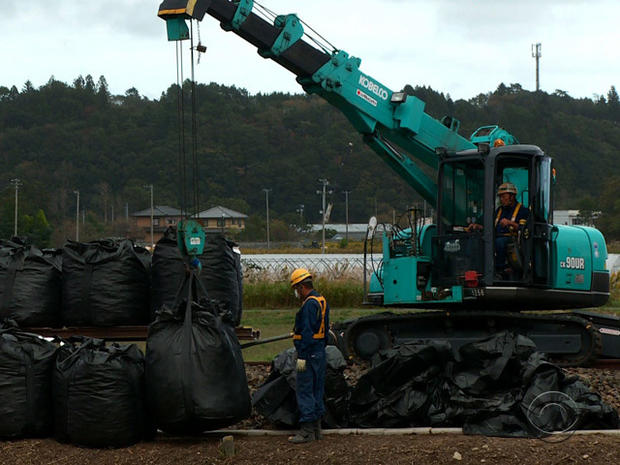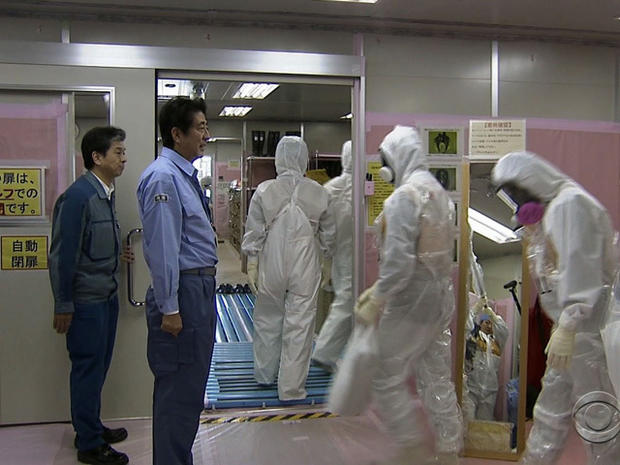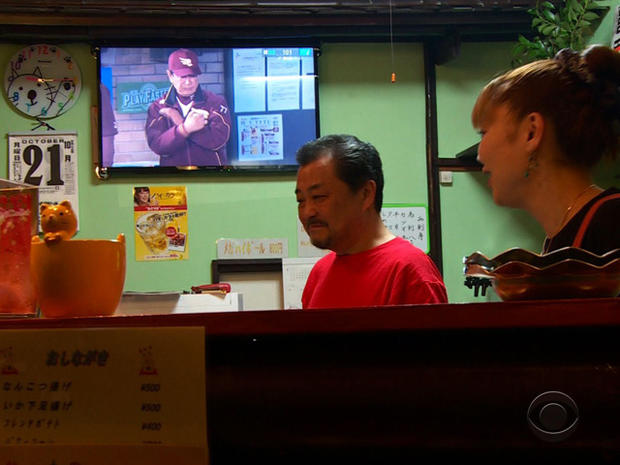Decontamination problems persist at Japan's crippled nuclear power plant
(CBS News) FUKUSHIMA, Japan -- Japan's government was forced to admit this week that the radiation cleanup near the Fukushima nuclear plant is way behind schedule.
Three reactors melted down after the earthquake and tsunami in 2011. Those evacuated hoped to be back home by next March, but now their return may be years away.
Bags filled with radioactive soil line roadways more than 10 miles from the Fukushima Daiichi nuclear plant.
Tens of thousands of workers have been hired to scrape up the top layer of contaminated earth. But a former worker told us it was a futile task.
"We'd decontaminate around a house," he said, "but if it rained, more contaminated earth from outside that perimeter would just pour right in."
He did not want to be identified because he feared he would not find work again.
"You can't see or smell the radiation," he said.
At first the workers tended to be careful about keeping their protective gear on, he said.
"But after a while, we became lax and forgot about what a high-risk environment we were working in," he said.
Then he learned the subcontractor that hired him was pocketing the government hazard pay he was supposed to receive. He was being paid $15 dollars an hour but should have made $25.
Japan's prime minister has tried to project a positive image of life "returning to normal." He even ate fish from Fukushima's waters.
"Basically, they can't recruit enough people," he said of the cleanup. "That's why they're plagued by delays."
But he has not persuaded Satoshi Kamata. Kamata's one of 146,000 "nuclear refugees." His home is still unsafe to live in and he couldn't keep his job.
Now he runs a small bar that's a hangout for decontamination workers.
Still, the government insists that residents like Kamata will be resettled within two and a half years.
"I'd like to say to those elite government guys, 'Why don't you go try living in my town in two and a half years?'" he said.
Tons of contaminated soil is stored temporarily in huge lots. Many towns here don't want it, so the waste -- just like the residents -- sits in limbo.



